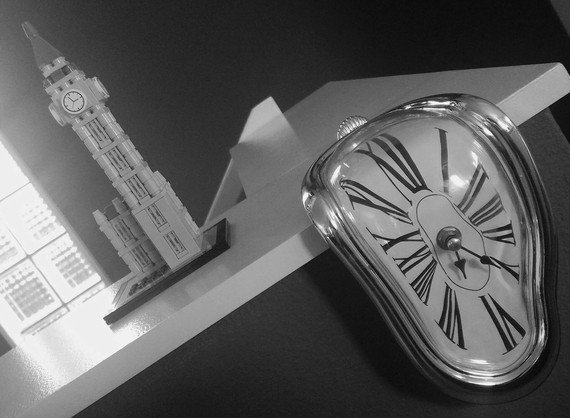A few times a year, something magical happens in my world. I find myself in possession of something akin to the Holy Grail -- 24 hours without any plans. When I realize that one of these days is on the horizon, it captures my full attention, and I go to extreme lengths to protect it. And then I start to fantasize about all of the wonderful things I'm going to do with this precious, empty day. The adventures I'm going to have, the radical self-care I'm going to partake in, the trombone practice, the photography expedition, and as sad as it is, I've even fantasized about using some of these days to finally catch up on work. My expectations start to soar, and more often than not I find myself starting to stress about how I'm going to fit it all in.
I've been doing a lot of mindfulness work lately, in particular trying to play the role of "curious observer" to my thoughts and behaviors. It was through this curious observation that I came to a shocking realization this week.
Things take time.
Quite a lot of time, actually. And no matter how much we try to multitask (which is not only counterproductive but may even be damaging to our brains), or use the latest "productivity hack" to expand it, time isn't going to change to meet the demands of our busy schedule.
It's no secret that those demands have grown, seemingly exponentially, during our lifetimes. While a lot of progress has been made on the convenience and efficiency fronts, the expectations about what we do with all that saved time have escalated out of control. Some of those expectations we place on each other (we've all got our "thing", and we all want our friends and family to come watch/play/do it with us), but most of them come from within. We expect from ourselves nothing less than the perfect body, perfect relationship, perfect career, perfect home... and the list goes on. But guess what?
Mastery takes time.
10,000 hours of deliberate practice to be exact, according to Malcolm Gladwell in the bestselling book Outliers. And even that won't get you there if you're not starting with some key talent or genetic qualities. But let's consider that for a moment -- 10,000 hours. If you were to spend two hours per day of deliberate practice on just one of those things (which is pretty ambitious for most of us), every single day, it would take about 13 years and 8 months to achieve mastery (which is as close to perfection as any of us can hope for).
Knowing this rule of thumb arms us with information to help reshape the expectations we place on ourselves. Namely:
- Pick a thing to be the thing you're really, really good at. Maybe two. But no more than that, because if you do, you're setting yourself up for failure.
- For those one or two things, calculate where you're at on your journey to mastery using the 10,000 hour rule, and reset your expectations for achieving mastery based on the amount of time you are willing to commit in the future.
- For all of the other things you used to aspire to perfection in, create a new expectation that is more realistic based on the amount of time you are willing to commit to it.
- Next time you notice yourself stressing about being too busy, look at your schedule objectively and be honest with yourself about where you're placing expectations on yourself that you could ease up on. If you think everything is being imposed on you by others, think again. We often tell ourselves this to avoid taking responsibility for our own experience.
How would you describe your relationship with time? And how could you improve it? I'd love to hear from you in the comments below.
This article first appeared on Light Yourself Up.
